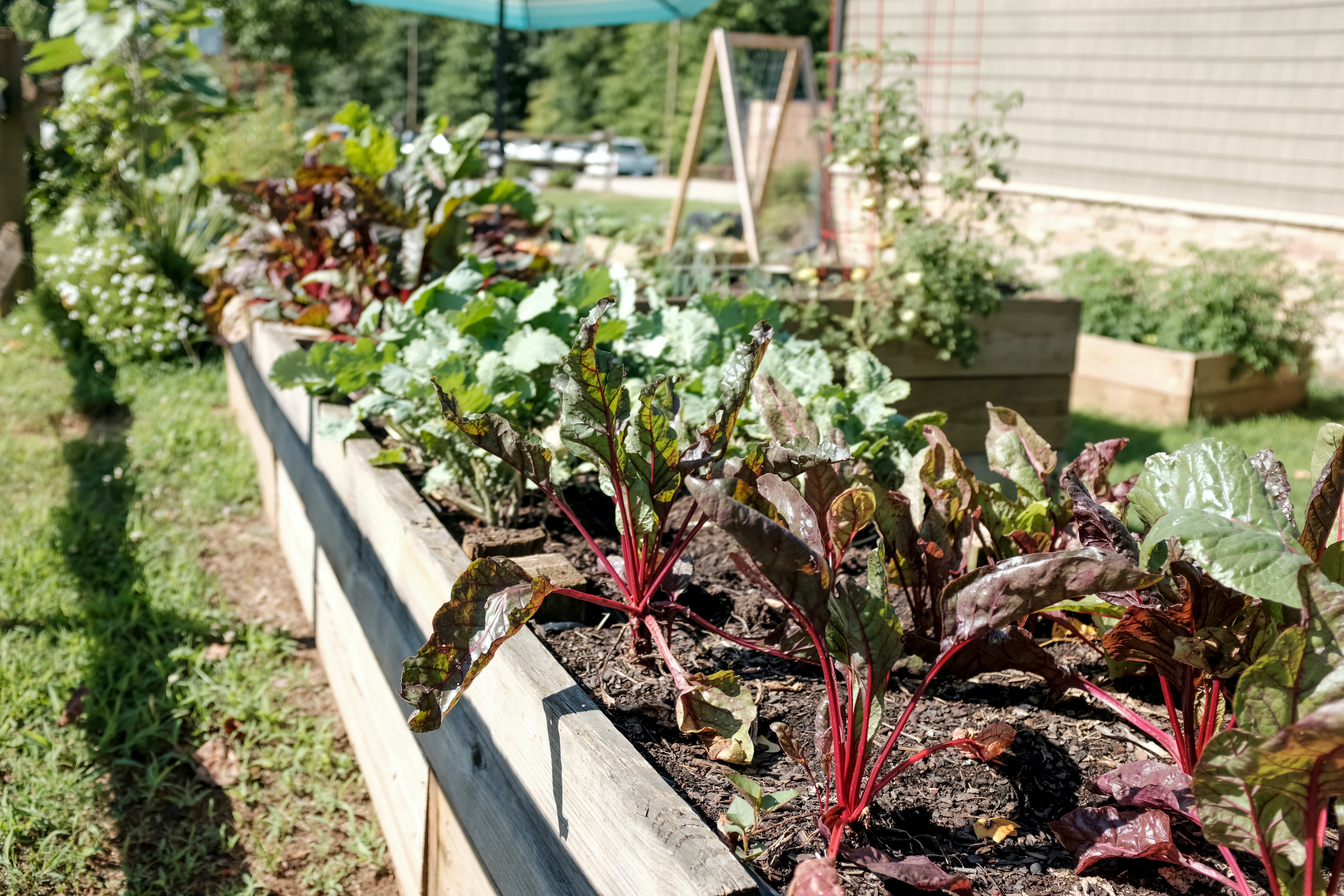Planting and Tending Your First Garden: Here's How
07/15/21

Maybe you think you don’t have a green thumb. But you’ve always been interested in starting a garden, to grow fruits, vegetables, herbs, and more. Whether you want to spice up your cooking or learn a new skill, starting a garden is rewarding, fulfilling, and eminently practical -- you'll create fresh, luscious foods for yourself, usually at significantly lower costs than store-bought items. Yet it can be difficult to know how to begin.
Confused about how to dig into your gardening journey? These tips will help you choose which plants to grow and how to start properly tending your garden.
Build Raised Beds and a Fence
Your first step will be to decide where to locate your garden. Choose a spot that receives an abundance of sunshine and that has good drainage and rich soil. If you’re unsure of your property lines (and if it’s within your budget), you may want to ask a property surveyor to determine your home’s boundaries so you don’t infringe on your neighbors.
As Better Homes & Gardens explains, a six-by-six space is generally sufficient for a home garden. If you’re focusing on vegetables, you’ll need to research the difference between warm-season and cool-season vegetables where you live; this will determine when you should start planting. Consider investing in a soil thermometer to keep a close eye on those temperatures.
Once you’ve decided on a spot, you’ll need to set up your “infrastructure.” One good first step is to build a raised garden bed, which eases strain on your back and knees and promotes good drainage.
It can be difficult to find pre-made raised garden beds for sale, so this is a project you'ill most likely have to do yourself. Even if you’ve taken on DIY construction projects before, it's wise to find the best instructions you can, so that your bed will be sturdy and durable for years to come.
And to protect your harvest from curious critters, you can put a fence around it. As Gardening Channel explains, this will be determined by what sort of pests you have in your area. Typical culprits include deer, rabbits, and gophers.
Choose Your Plants
When starting your first garden, you may feel overwhelmed by the vast choice of herbs, vegetables and fruits that you can grow. Some plants are more difficult to nurture than others, but luckily there are plenty of options that are perfectly suitable for beginners.
For example, The Balance recommends growing herbs like basil, chives and chamomile. As for vegetables, you probably won’t have much trouble with carrots, tomatoes and peppers. And if you’d like to try growing fruit, Grow Veg recommends starting with soft fruits like strawberries, raspberries and blackberries. You can start your plants from seed, or you can pick up small starter plants from a local farm or garden center.
Garden-Tending Tips
It’s easy to assume that tending a garden is complicated, but, with a little luck, it can be quite easy. Many plants need little more than water and sunlight. You’ll want to establish a routine of checking your garden every day, doing some weeding and watering any plants with wilted leaves. That said, it’s vital for you to learn how much water your plants need, as you don’t want to risk overwatering. (The Sill has an excellent guide to watering plants.).As the seasons change, you can plant new seeds so that your garden will flourish with different beauties all year round.
Harvesting
Now comes the fun part -- harvesting the fruits of your labor! Take a little time to research when to harvest the vegetables you’ve selected; GrowVeg tells you what you need to know, discussing everything from root crops to fruiting vegetables. As a general rule, it’s better to harvest in the morning and to avoid harvesting in wet weather.
Most likely, you'lly be able to harvest your herbs first. The payoff here: You can sprinkle a few basil leaves on your pizza, add some oregano to your pasta sauce, or dry your chamomile to make tea.
You also may end up with some good things to share with your neighbors. If you have a bountiful harvest, you can also preserve what you've grown. For example, you may want to experiment with pickling vegetables or preserving fruits by making jams.
Planting and tending your garden are both fun and relaxing. You’ll love having an excuse to spend more time outdoors, and there is something super-exciting about growing your own food rather than buying it from a store -- or online. Once you see your plants sprouting from the soil, you’ll be glad you helped usher them into the world.
--By Emma Croft
Ms. Croft is the principal at GetGardening
